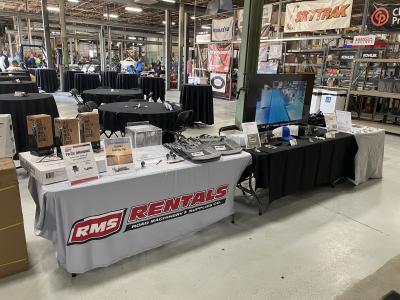PORT CHARLOTTE, Fla. (AP) The global market for scrap metals is at an all-time high — and that has created a means of survival for some area construction workers left unemployed after the southwest Florida real estate market went bust a year ago.
Now, instead of hauling tools to their construction sites, the workers are using their pickups to scour the countryside of junk, which they then sell at local recycling yards at prices that have tripled in the past couple of years.
Some are experiencing a bonanza the likes of which they haven’t seen in years. The more industrious scrappers are earning from $300 to as much as $1,000 for a day’s haul.
All day long, they can be seen rolling in to the scrap yards, towing trailers loaded down with rusty appliances, gigantic generator parts, sections of airplane wings, lawn mowers, bicycles, old pumps and just about anything else made of metal.
“Oh yeah, every Tom, Dick and Harry’s getting into it now,” said scrapper Greg Stevens of Port Charlotte.
Stevens and a partner have been scrapping for a couple of years. But “now it’s getting good,” he said of the money.
As he was being interviewed outside the Allied Recycling Inc. yard in the Whidden Industrial Park, a big front loader was hoisting a couple of rusty dual-wheeled tractor-trailer axles off Stevens’ trailer. He expects the axles to bring about $300 each.
Scrap fever, as it might be called, has also spurred a major crime wave, a review of recent Charlotte County Sheriff’s reports indicates. Sheriff’s reports show there have been at least 15 cases involving $30,000 worth of metal items stolen from local businesses and residential yards in just the past week alone.
“It’s becoming a big problem,” said Bob Carpenter, sheriff’s spokesman.
Air conditioners have become the local criminal’s spoil of choice because they don’t require breaking into houses to steal them, Carpenter said.
“Now, it’s just cut the wires, throw it in the truck and get away,” he said.
He said lawmakers have been considering legislation to regulate the sale of scrap in much the same manners as pawnshops.
Deputies made several arrests in the illicit scrap trade.
In a couple of incidents, thieves even burglarized recycling yards.
“They’re scrapping their grandmothers’ cars,” added William Gard, owner of Gard Auto Repair in the Cleveland community. Gard’s business is located a block from two scrap yards, and watching the scrappers haul in their loads has become a pastime.
Many of the loads consist of beat up, rusted-out cars. But Gard cringes at the loss of some of the antique relics that are getting swept up.
“There’s Model Ts and Model As,” he said. “I saw a ’36 Chevy the other day.”
Gard said he was at Trade Mark recently to do some scrapping of his own. He said he looked into a bin and saw nine Pratt & Whitney cylinder heads for 1940’s vintage aircraft engines.
“Those things sell on e-Bay for $5,500 a piece,” he said.
“It is booming,” said Robert Brown, owner of MSB Used Auto Parts, 5029 Dalewood St. in Cleveland. “Scrap is at an all-time high.”
But the boom doesn’t boil down to profits, he said. He cited the high price he has to pay to purchase junk vehicles. The price has more than tripled to about $300 per car, and he said that’s driving up the price he has to charge for the used parts.
“Personally, I was a lot happier three to four years ago,” Brown said.
Brown also suspects that as much as 50 percent of the scrap getting hauled to local yards is stolen property.
He said he won’t accept junk vehicles unless the owner has a title. Other yards accept vehicles without a title, as long as the owner signs an affidavit stating the car was not stolen.
“I don’t want to drive an economy of thieves, but, boy, it’s going,” he said.
“It’s been going very well,” said Rusty Phillips, facility manager for the Trade Mark yard, also on Dalewood Street. “But I think it’s kind of a bad thing, myself. Our (profit) margins don’t change any. Just the amount of scrap we buy.”
When Trade Mark bought the yard in January, it was shipping about 20,000 lbs. (9,000 kg) of scrap out per month. This month, it topped 126,000 lbs. (57,000 kg), and the vast majority of that was the more valuable nonferrous metals, such as copper and aluminum, he said.
The metals are sold to Tampa yards where the metals are shredded and loaded on ships, much of it for export.
Retiree Roger Millspaugh, however, was delighted with the $12.88 he earned from bringing in a garbage bag of aluminum and junk.
“Wow,” he said. “I’ve got enough to buy beer and go fishing!”
For the scrappers, however, the rising price, which has climbed from $4 per 100 lbs. (45 kg) to some $12 per 100 pounds, has proven more than an adequate incentive to clean up junk from the countryside.
“It’s the only source of money around here,” said Dan Feijoo. “Construction is dead. If it wasn’t for this, more people would be having trouble.”
“The most I’ve made is $835 for a load of aluminum,” said Daniel Summerall of Arcadia, who was unloading part of an aircraft wing at Allied. To Summerall, who earns a living doing odd jobs, this means “good times.”
“I ain’t really had a job in the last two or three years,” he said.
Prices have risen due to construction and manufacturing booms in China and India, said Sean Xu, content manager of the GlobalScrap.com Web site, an electronic trade publication.
India, a major importer of steel, even bought a salvage yard recently in Texas, so it could buy American ships to scrap, Xu said.
As the global demand for metal grew in the past few years, the “primary market” for investors, such as IMEX, which is a metals exchange market, heated up, and that drove up the price, he said.
However, Xu said the market’s steep climb now appears to be tapering off.
In part, that’s because construction has declined in the U.S. But the slowdown in construction, while it decreases demand for steel, aluminum and copper, also decreases the supply of scrap.
“Nobody’s building new buildings, so we’re not tearing down things to make room for them,” Xu said. “That’s where scrap comes from.”
But Port Charlotte scrapper Stevens isn’t worried.
“Scrapping never stops, because this is one of the most wasteful countries in the world,” he said with a smile.
Today's top stories















